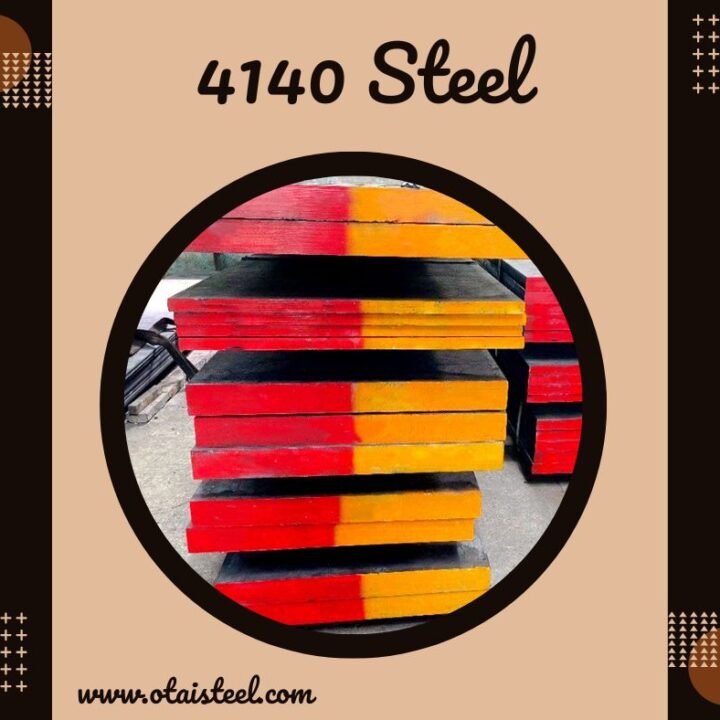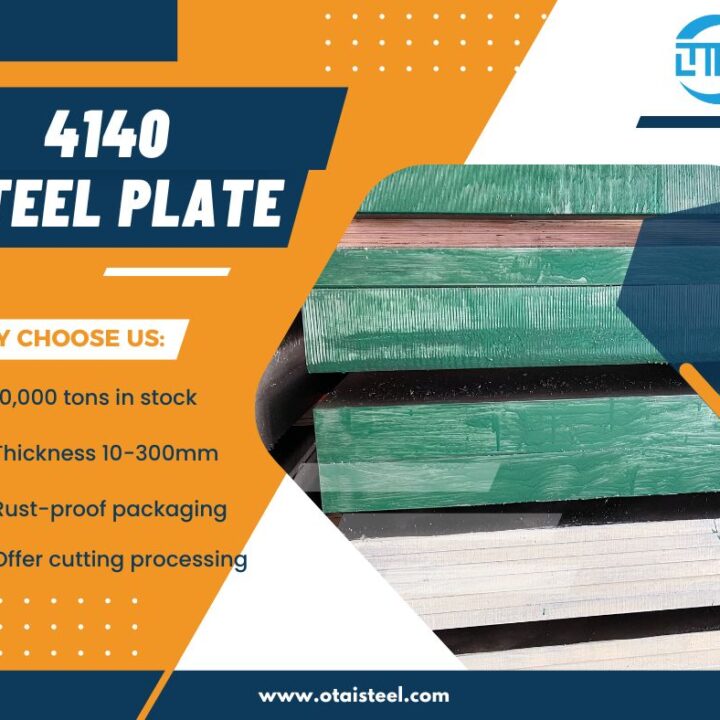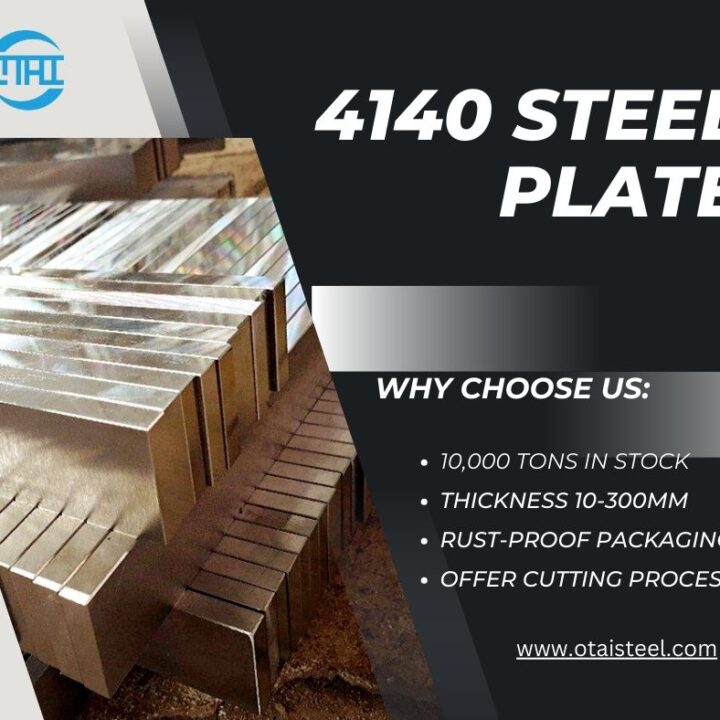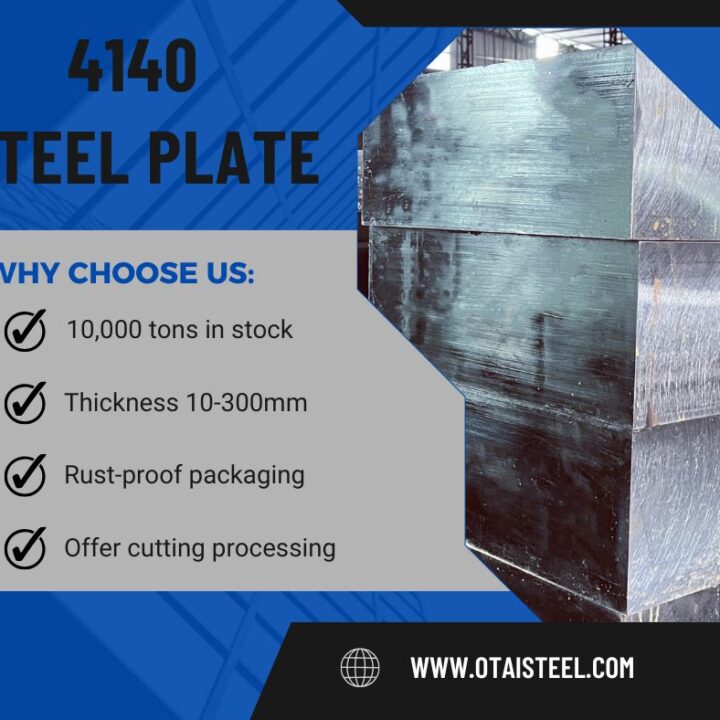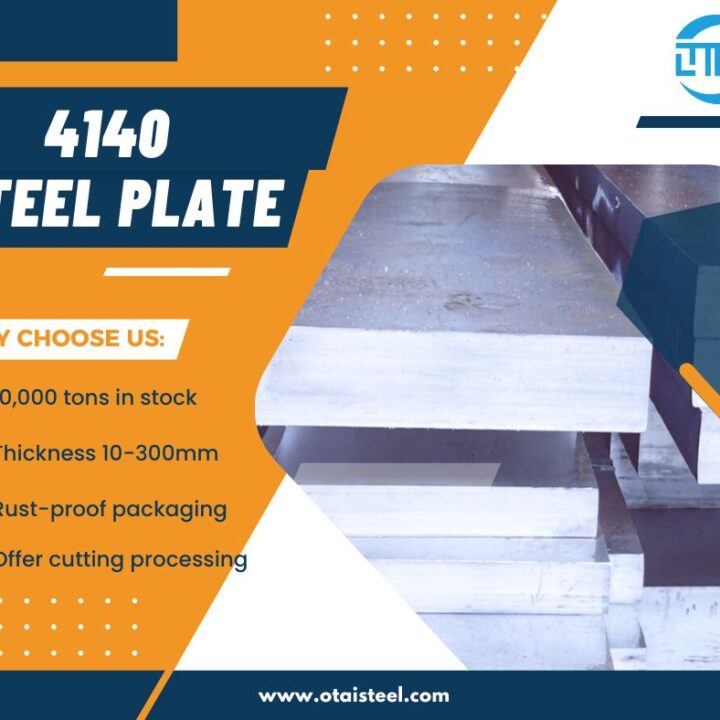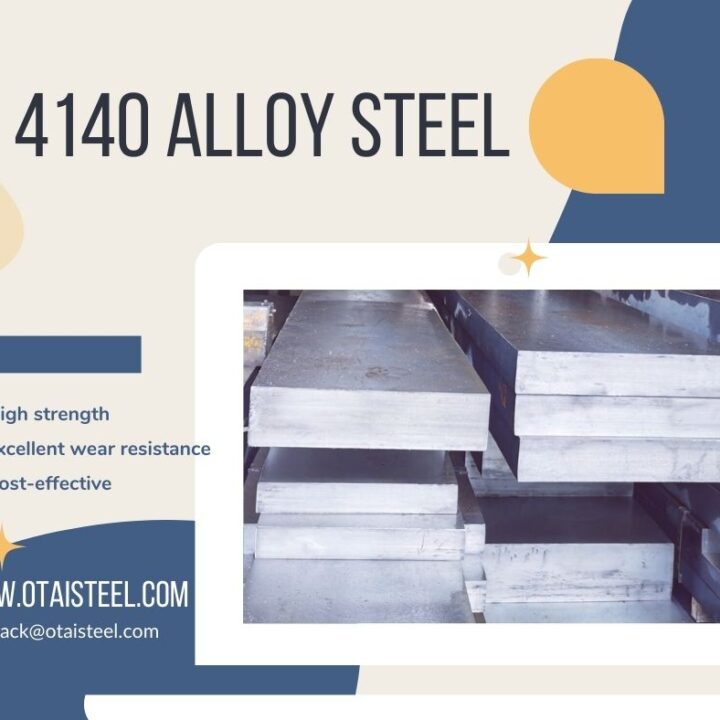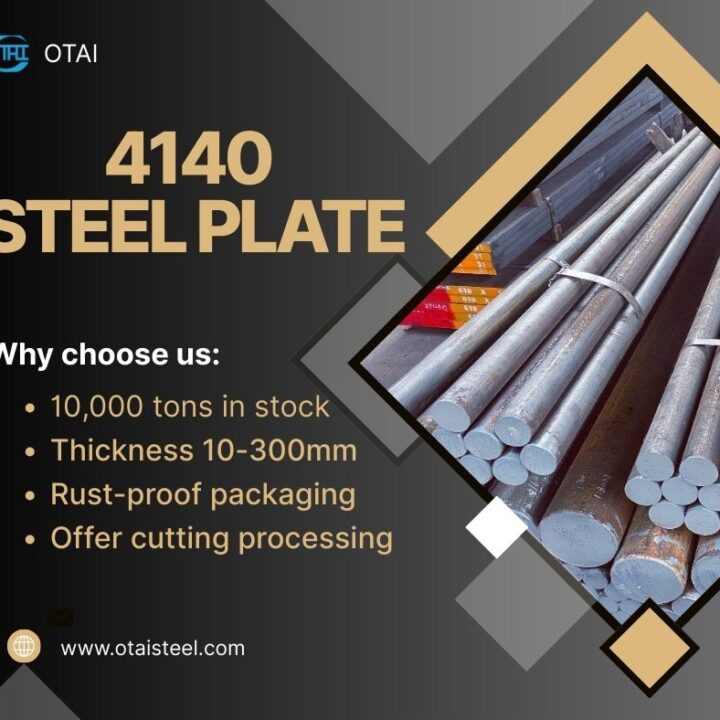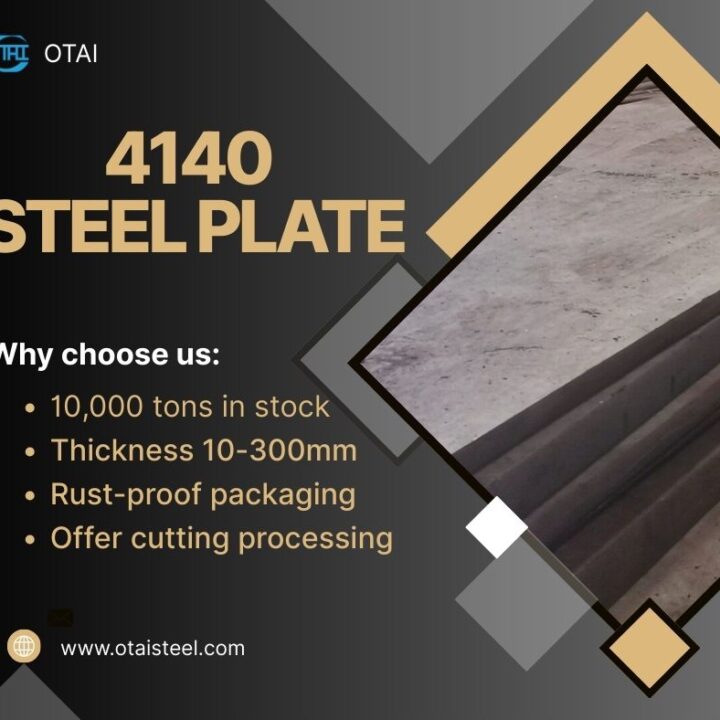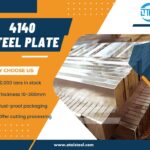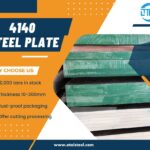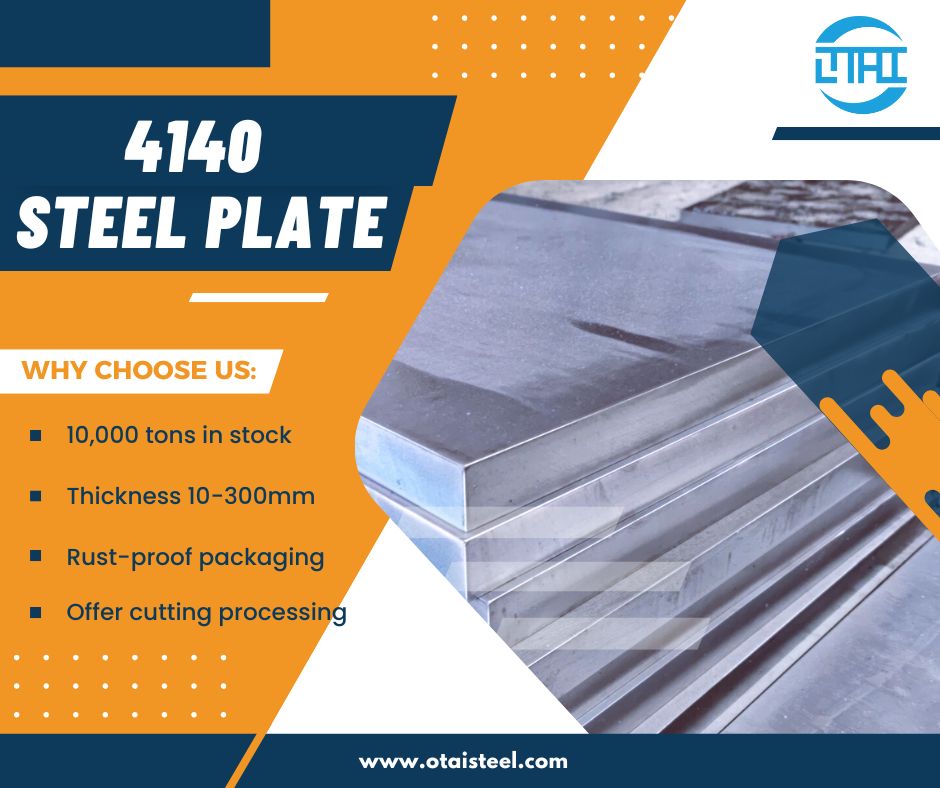 Uses for 4140 Steel: Where This Tough Alloy Shines Most
Uses for 4140 Steel: Where This Tough Alloy Shines Most
If you’re in the manufacturing, tooling, or automotive industry, chances are you’ve come across 4140 steel more than once. Known for its high strength, toughness, and versatility, 4140 steel is one of the most popular alloy steels on the market today. But what exactly are the uses for 4140 steel, and why is it so trusted in demanding applications? Let’s dive into the details and explore where this powerhouse of an alloy truly excels. 💪
🏭 What Makes 4140 Steel So Useful?
4140 is a chromium-molybdenum (Cr-Mo) alloy steel with excellent mechanical properties. It offers a perfect balance of hardness, tensile strength, and wear resistance, which makes it suitable for parts subjected to high stress and impact.
Here’s a quick look at its core properties:
| Property | Typical Value (Normalized or Quenched & Tempered) |
|---|---|
| Tensile Strength | 850–1000 MPa |
| Yield Strength | 655–900 MPa |
| Hardness (HRC) | 22–35 (can be increased by heat treatment) |
| Elongation | 20% |
| Modulus of Elasticity | 205 GPa |
| Impact Toughness (Charpy V) | High |
These properties explain why uses of AISI 4140 steel extend across so many industries.
🛠️ Common Uses of 4140 Steel in Real Life
Let’s break down the most common uses of 4140 steel across industries:
1. 🚗 Automotive Industry
In the world of cars, trucks, and heavy-duty vehicles, strength matters.
4140 steel for automotive parts is especially common in:
-
Crankshafts
-
Connecting rods
-
Axle shafts
-
Steering knuckles
-
Suspension parts
The steel’s fatigue resistance and ability to withstand torsional loads make it ideal for high-performance and off-road applications.
2. ⚙️ Gears, Shafts & Rotating Parts
The combination of toughness and wear resistance makes 4140 perfect for dynamic, load-bearing components.
Key 4140 steel applications include:
-
Transmission gears
-
Pump shafts
-
Drive shafts
-
Spindles
-
Collars
These machinery parts made from 4140 often operate under continuous stress and motion, making durability non-negotiable.
3. 🏗️ Construction & Structural Engineering
4140 steel for structural components is ideal when standard carbon steel just isn’t tough enough.
Examples include:
-
High-strength bolts
-
Tie rods
-
Hydraulic systems
-
Heavy machinery frames
4140 can handle high loads and tough environments, such as mining or marine conditions.
4. 🔩 Tooling & Manufacturing Equipment
Tool steel is great, but sometimes you need something a little more machinable yet still strong.
4140 steel in manufacturing is widely used for:
-
Dies and molds
-
Jigs and fixtures
-
Machine tool holders
-
Drill collars
It strikes the right balance between machinability, toughness, and wear performance.
5. 🛠️ Oil & Gas Industry
The oil and gas sector operates under brutal conditions—extreme heat, pressure, and exposure to corrosive elements. That’s where 4140 steps in.
Industrial uses of 4140 steel here include:
-
Drill collars
-
Sub-surface safety valves
-
Tubing hangers
-
High-pressure valves
Its combination of strength and hardenability helps ensure safety and performance in critical applications.
📌 Typical Forms of 4140 Steel Used in Industry
You’ll find 4140 steel in several forms depending on the need:
| Product Form | Common Dimensions | Application Example |
|---|---|---|
| Bar (round/square) | Ø10–Ø500 mm | Shafts, bolts, tools |
| Plate | 6–300 mm thick | Machine frames, molds |
| Tube/Pipe | OD 30–400 mm | Hydraulic cylinders, axles |
| Forgings | Custom-sized | Oilfield tools, gear blanks |
Whether you’re designing 4140 steel for shafts and gears or critical forgings, it comes ready to perform.
💡 Why Choose 4140 Over Other Steels?
Wondering where is 4140 steel used instead of mild steel or tool steel? Here’s how it compares:
| Feature | 4140 Steel | Mild Steel | Tool Steel (D2) |
|---|---|---|---|
| Tensile Strength | High | Moderate | Very High |
| Machinability | Good | Excellent | Poor |
| Heat Treat Response | Excellent | Poor | Excellent |
| Cost | Moderate | Low | High |
| Applications | Versatile | General | Precision tools |
4140 offers a happy medium: stronger than carbon steels but easier to machine and cheaper than full tool steels.
🌟 Our Company Advantages
At Otai Special Steel, we offer:
-
📦 Over 10,000 tons of 4140 steel plates and bars in stock
-
🔍 Ultrasonic testing (UT), chemical composition analysis & third-party inspections (SGS, BV)
-
⚙️ Heat treatment services (annealing, Q&T, stress relief, normalization)
-
✂️ Precision cutting to size, packaging & worldwide delivery
-
🤝 Trusted by international clients like Thyssenkrupp, Borealis, and Schlumberger
Let us help you source the high-strength 4140 steel you need—quickly, reliably, and affordably.
📩 Contact us now for a quote or free consultation!
📧 Contact us: jack@otaisteel.com
📱 WhatsApp: +8676923190193
❓FAQ About 4140 Steel Uses
Q1: Can 4140 steel be used for making tools?
Yes, especially for jigs, fixtures, dies, and other wear-resistant components. It’s not as hard as D2 or H13, but it’s much tougher.
Q2: Is 4140 steel suitable for welding?
Yes, with proper preheating and post-weld stress relieving, 4140 can be welded successfully.
Q3: Is 4140 overkill for simple parts like bolts?
Not always! For parts subject to fatigue, torsion, or dynamic loads, 4140 adds strength and longevity.
Q4: Can I use 4140 in corrosive environments?
With surface treatment (e.g., black oxide, chrome plating), yes—but for extreme corrosion, stainless steels are preferred.
Q5: Does Otai provide heat-treated 4140?
Absolutely. We offer normalized, quenched and tempered, or annealed 4140 steel per your application.
